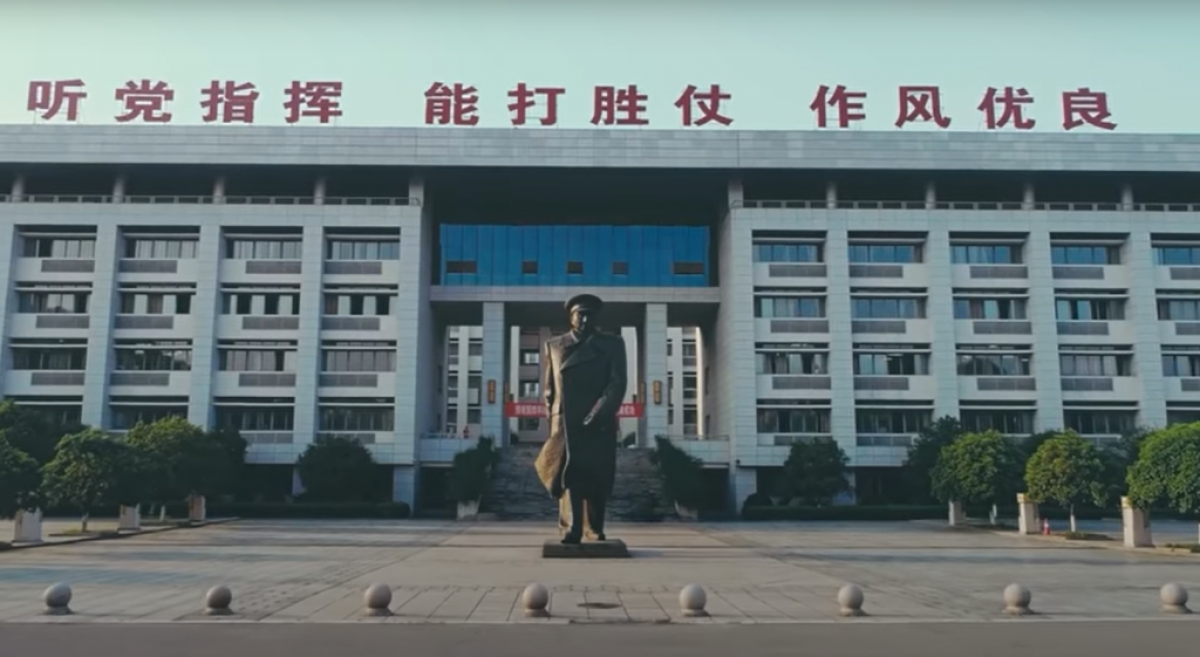The government opened a Knowledge Security Service Desk this week. Scientists can contact the Desk if they have any concerns about issues like undesirable knowledge transfer.
A screenshot of a promotion video of the National University of Defense Technology of the People's Liberation Army. (Photo: YouTube)
Researchers, university administrators and students can contact the Knowledge Security Service Desk (in Dutch) for information and advice about issues such as ‘entering into partnerships with knowledge institutions and companies abroad’, says a Government of the Netherlands website. This week the Nationale Leidraad Kennisveiligheid (national guide for knowledge security) was also issued to help academia decide on collaborating with other countries, for example if undesirable knowledge transfer looms.
Several universities such as TU Delft, universities of applied sciences, the Royal Netherlands Academy of Arts and Sciences (KNAW) and the science financer Dutch Research Council (NWO) worked on the document. Various Government of the Netherlands ministries and services – including the General Intelligence and Security Service (AIVD) – also provided input.
The new guidance document (in Dutch) of about 50 pages covers issues such as national security, cybersecurity, recruiting researchers and ethics. It also advises universities in the area of risk management.
Russia and China are always named as examples of countries that prey on Western universities. Delta showed that the risks are real in a series of articles about TU Delft-Chinese collaboration on technologies that are interesting for the Chinese army.
Useful tool
China is hardly mentioned in the guidance document, writes the Hoger Onderwijs Persbureau (higher education press agency). The guidance document only points to the China Defence University Tracker which shows which universities are connected to the Chinese army or are doing research for the Chinese defence sector.
Peter Weijland, Knowledge Security Programme Director at TU Delft calls the guiding document a “clearly written and useful document”. He goes on to say that “It is a useful tool to help shape TU Delft policy in the area of knowledge security. We received the first draft in October and since then have used it to design a knowledge security programme.”
Over the last few months, TU Delft has made strides in the area of knowledge security. For example, TU Delft started a pilot in October with a Committee for Collaboration Integrity with Third Parties at the Faculty of EEMCS. The pilot will run until June after which every faculty will have its own Committee. “By June we hope to know how we can compile the committees and how their members will work. In the end, scientists need to approach their own faculty committee if they have any doubts about particular partnerships.”
Partnering Tools
TU Delft is also working on ‘translating’ the China Tools – a manual for scientists to evaluate if they should enter into an academic partnership with China – into a general version. “This will be the Partnering Tools that should be used to evaluate partnerships with any country,” explains Weijland.
He is also happy about the arrival of the national Knowledge Security Desk. The Desk’s website contains a collection of documents that universities can use and a contact form with which scientists and administrators can ask questions. “The Desk is new for everyone, even for the people who work there. We will all have to find our way at first, but I think that in six months or so it will issue very pertinent information if academics are facing a knowledge security issue.”
Delta, Annebelle de Bruijn / HOP, Bas Belleman



Comments are closed.